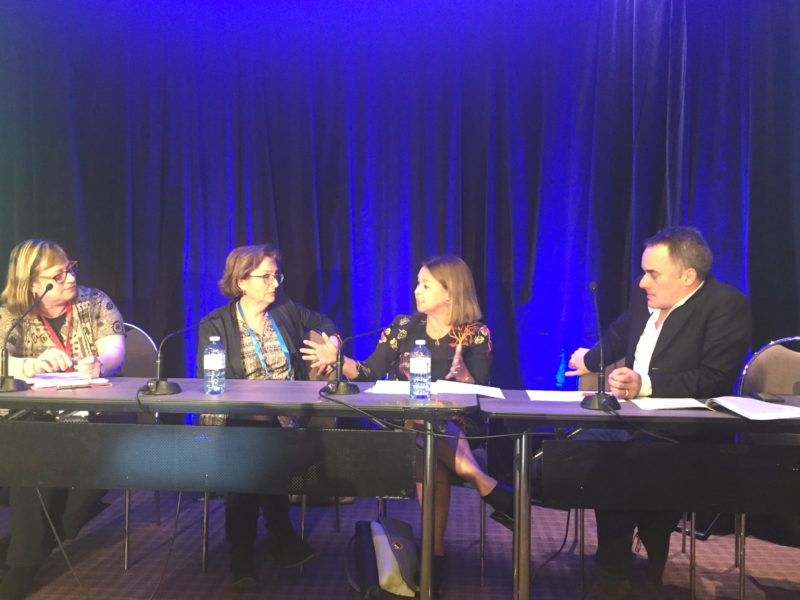Commercial broadcasters mull paying ABC to take on kids’ TV obligations
Australia’s commercial TV networks may attempt to drop their obligations to deliver a quota of children’s drama content and instead pay the ABC to it, it emerged today.
The possibility came to light during a session at the Screen Forever conference in Melbourne that was dedicated to the future of the children’s television production sector.

Children’s quotas: From left – Enker, Buckland, Guthrie and Mason
At present, the commercial free-to-air players are obliged to meet content standards which include delivering 96 hours of first run children’s drama content over each three-year period. However, the networks struggle to cover the production costs of the programming through advertising revenue, leading them to spend less and less on making the shows.


And I thought that the commercial stations were supporters and bastions for a competitive market.
If this LUNACY happens to occur that means that local children’s TV producers will have a single door in Australia to knock on.
Can SOMEONE in the government stand up for a robust competitive market in ALL facets of television please. They’ve received a massive free-kick with yet another reduction in licence fees (the rent they pay us as owners of the airwaves), but simply want to walk away from their social responsibilities.
To news can you please put on abc for kids 1 tomorrow morning tv show where mixy abc for kids and the ferals tv tomorrow nights and the ferals when I saw you abc news you made old film abc for kids 1 where mixy with 10000 episode when tristan saw first on tv I love so much and was the best ever in whole world